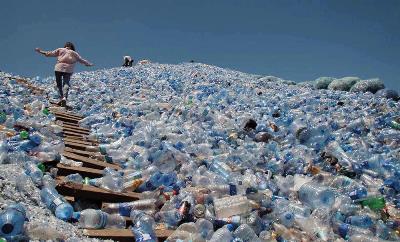In case you haven’t noticed there is a scandal recently uncovered around plastic recycling, explained for example on this well-named post ‘How Big Oil Misled The Public Into Believing Plastic Would Be Recycled‘. It is worth reading thanks to the depth of investigation as it almost reads like a spy novel. It shows how the general public got manipulated by the industry in believing plastic would be recycled when it isn’t – but giving us good conscience. And this probably does not stop at plastic recycling: much of the waste sorting effort at its origin gets wasted by subsequent treatment.

In addition to the situation exposed in the link, there have also been reports of illegal disposal of recyclable plastic in less developed countries as the result of cross-border waste commerce. There seems also to be increasing evidence that the situation has been developed consciously by the industry: “We found that the industry sold the public on an idea it knew wouldn’t work — that the majority of plastic could be, and would be, recycled — all while making billions of dollars selling the world new plastic.” According to the investigation, the plastic recycling illusion was developed at the end of the 1980s to face the increasingly worse image of the industry.
It is good that such journalism still exists today to uncover such practices and differences between what is published and what is actually happening.
Like for most materials around including metals and glass, plastic virgin material is easier and cheaper to produce, and avoids also all risks of contamination. Still I observe that there are a few startups around developing new technologies based on enzymes that would provide new routes for effective recycling of plastics.
Effective and economic recycling of material is still a major challenge to be addressed in spite of laws on disposing only ultimate waste; this will need to be addressed in an urgent manner if we want to preserve our natural resources and avoid plastic demand to overgrow our capability to dispose of it.
